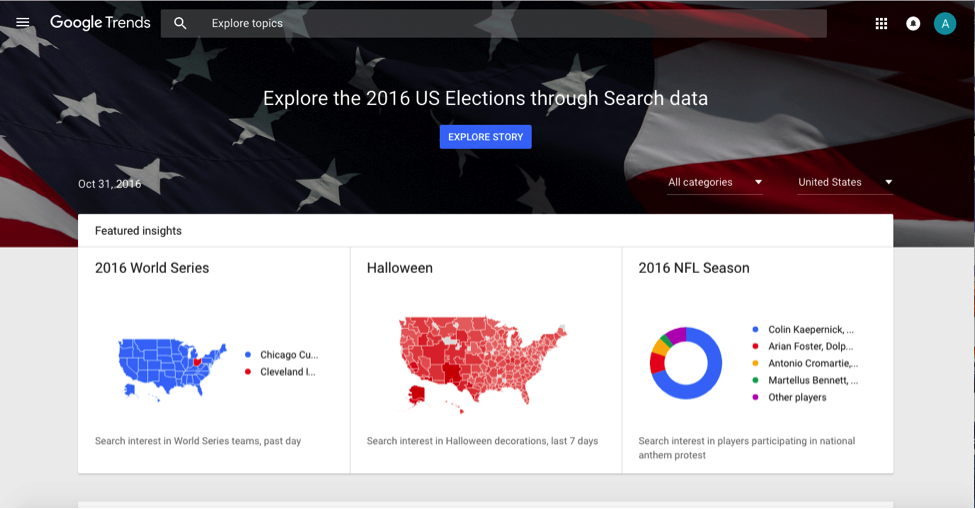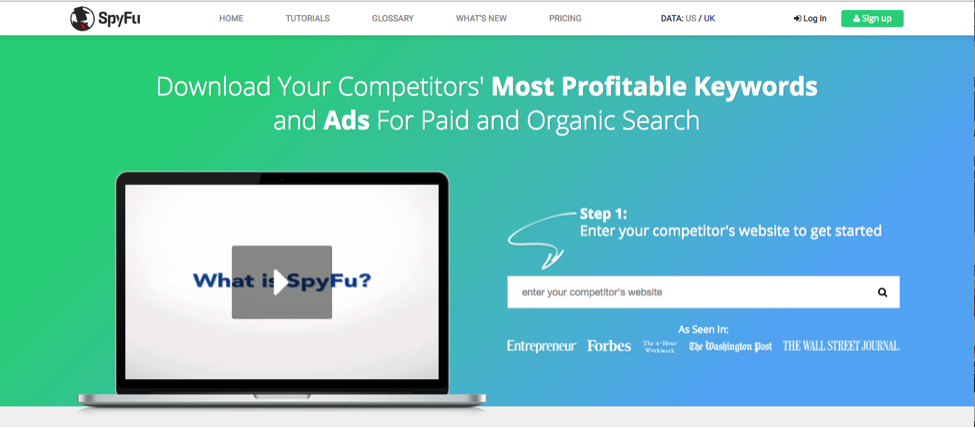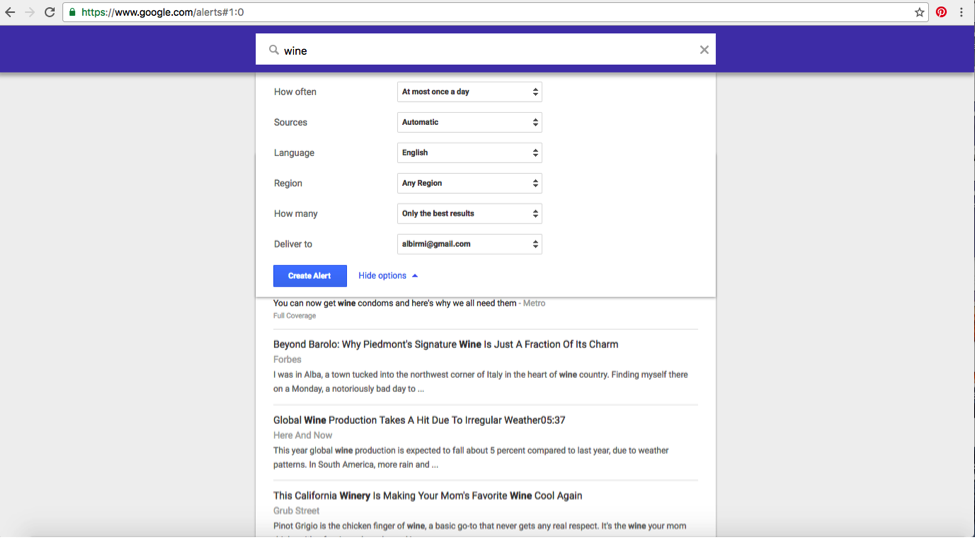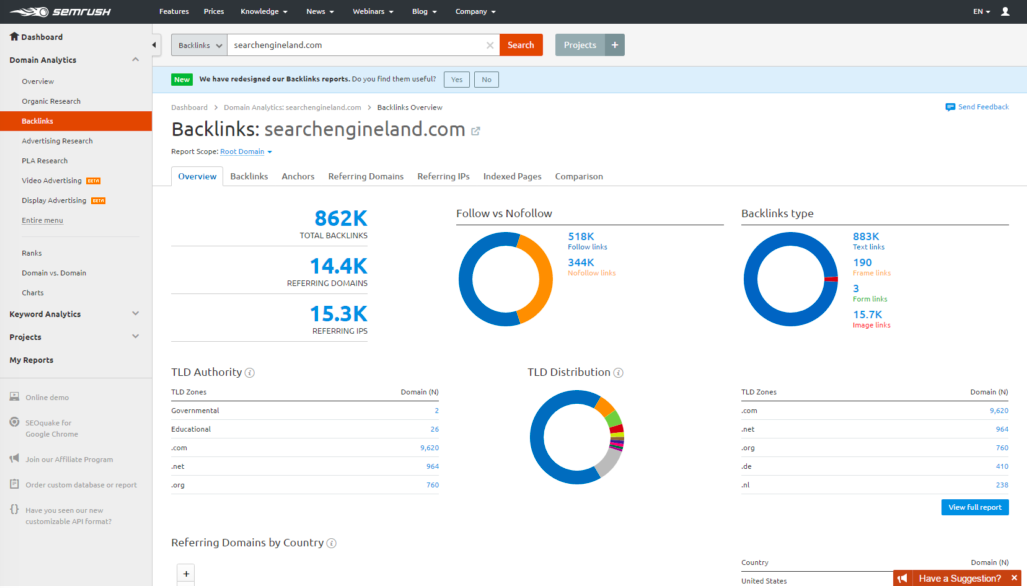The ability to identify your competition in business, analyze their strengths and weaknesses, and then determine how your company measures up in comparison is an essential business strategy. Interestingly enough, the first part to that strategy is the one where so many companies fall short—identifying the right competition.
You could really hurt your company by spending a lot of money trying to beat out a business that isn’t a good comparison to your business, so it’s important to get the first step right before making any changes to your company to better “compete.”
Below is a list of 5 ways to identify your company’s true competition. Learn how to do this now and reduce your risk of failure later on in your marketing strategy!
#1 - Understand Competitor Levels and Where Your Company Fits In
Regardless of what industry you’re in, businesses generally fit into 3 categories of competition: direct, indirect, and substitute/ alternative/ new entrants. It’s important to know the difference between the 3 as well as exactly which category(ies) your competition fits into, so you know where to target the majority of your resources.
Direct: These businesses are your most aggressive competitors, so naturally this is an area where you’d want to spend a lot of time and money researching. Direct competitors are those who offer a similar product or service as you, and so consumers have to choose between your company and theirs when it comes time to make a purchase.
Indirect: You don’t have to worry too much about these types of competitors because they offer a product or service that differs substantially from your own. You shouldn’t completely ignore/ write them off, though, because an indirect competitor always has the potential to turn into a direct competitor.
Substitute/ alternative/ new entrants: They might be called a variety of different names, but their description is the same. These types of businesses are those who offer a product that is similar to yours, but in an alternate industry/market or a different geographic location. They might not sell the exact same thing as you, but they offer customers similar benefits. Thus, they’re still important because they could be taking away from the most lucrative parts of your business.
#2 - Is Your Competition Public or Private? Do a Simple Online Search
Companies that are publicly traded have to make their records public, for example, reports and financial data. A simple Google search will turn up this information if it’s available.
If your competitors are private companies, however, that makes things a little bit more difficult. You can still go online and search for their websites to gain valuable information, and while you’re on the web look for any media coverage, marketing materials, or industry publications that might give you some insight into their successes and failures.
BPlans also suggests calling them on the phone and pretending to be a potential customer. Ask all the questions you want, just make sure to do so from a consumer’s perspective.
#3 - Don’t Forget About Social Media
In 2017, it’s extremely rare for a company NOT to use social media for marketing purposes. Whether it’s Facebook, LinkedIn, Google+, Twitter, or any other increasingly popular social platform, chances are good that your competition is out there (and hopefully you are too!), so use this to your advantage to pick up some key facts about those with whom you are competing.
Figure out which social platforms they use and then consistently monitor their activity. Read their reviews, sign up to receive their newsletters, and even consider joining their email lists.
This ensures that you’re guaranteed not to miss any major developments that could potentially impact your business.
#4 - Take Advantage of Technology
Google Trends: This website is exactly what you might think; a place you can go to see what topics, searches, and videos are trending online right now. This site works great for identifying your competition because you can use it to see if customers are searching for your business or someone else’s.
You can also search products and see what users are talking about. You can also use Google Trends to learn more about keyword search volume, which you can learn more about here.

SpyFu: In order to take advantage of all this web app has to offer, you need to have a general idea of who some of your competitors are, and then you can use it to find out specifically who you’re competing against and why. Just type in the domain name for any of your potential competitor’s websites and let Spyfu reveal all their keywords, paid advertisements, and organic rankings from the last 10 years.
This is an instantaneous way to gain valuable information you can use to figure out how you match up to the competition and what they’re doing to succeed.

Google Alerts: This is a website you can use to monitor the Internet for new content. All you have to do is type in the topic you’re interested in, create an alert, and you’ll be notified whenever something new pops up! You have the option to customize how often alerts are sent, what region they come from, and how many results you would like to receive.
This is great for business owners because you can set an alert for products similar to yours so you can stay up to date on what’s happening in the industry. This is also a great way to figure out who your competition is.

SEMrush: Any properly thought out SEO strategy includes an in-depth competitor analysis. This platform has a huge list of tools that go beyond just looking for backlinks and keywords. However, you need to understand who are your true competitors to narrow down the research you're doing as part of your online competitor analysis. Their platform can answer the following questions about your competitors: What keywords are they ranking for? How are they engaging in social media? Are they doing any paid marketing?
Once you've gathered all this data on your competition, you can create your plan of attack!

#5 - When All Else Fails, Simply Ask Your Customers
Still not sure who your competition is and not great with technology? Why not go the old school route and ask your customers who else they buy products from.
Word of mouth may be antiquated, but it’s definitely still effective. This is an extremely cheap way to gain new information, and if you’re using it to improve your business, chances are your customers will be grateful and willing to volunteer the information. Just make sure you make it known that you’re interested so that you can expand the potential of your company and improve customer experiences, not so that you can tear down someone else’s business.
Consider asking customers why they make purchases from you as opposed to others, and if you lose a customer ask them what turned them off from your business (or turned them on to someone else’s) so you can make corrections in the future.
How did you determine your competition for your business? Let me know in the comments about how you determined who they are! Did you have any issues narrowing it down?
Innovative SEO services
SEO is a patience game; no secret there. We`ll work with you to develop a Search strategy focused on producing increased traffic rankings in as early as 3-months.
A proven Allinclusive. SEO services for measuring, executing, and optimizing for Search Engine success. We say what we do and do what we say.
Our company as Semrush Agency Partner has designed a search engine optimization service that is both ethical and result-driven. We use the latest tools, strategies, and trends to help you move up in the search engines for the right keywords to get noticed by the right audience.
Today, you can schedule a Discovery call with us about your company needs.
Source:




![How To Create a Strategic Dashboard in Excel Using Semrush Data [Excel Template Included]](https://allinclusive.agency/uploads/images/how-to-create-a-strategic-dashboard-in-excel-using-semrush-data-excel-template-included.svg)
